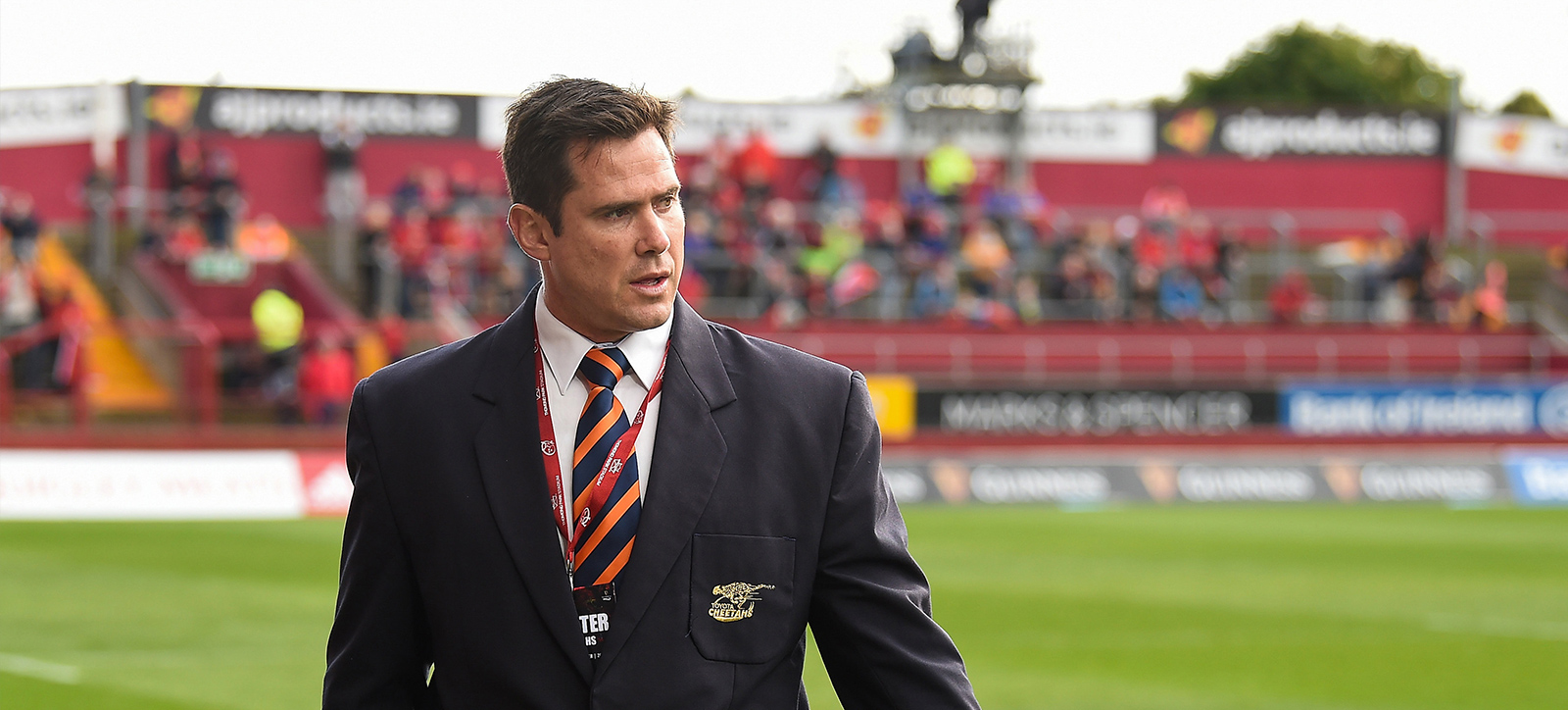
Fronting up: MBA student Rory Duncan has used his studies as CEO of Free State Cheetahs
Professional sportsmen and women often move into coaching when their playing days are over – few take the next step into the boardroom.
But that’s what MBA student Rory Duncan has done – after a career as a professional rugby player and coach in his native South Africa, Scotland and Japan, he is now the CEO of Free State Cheetahs, who are based in Bloemfontein – a club he both played for and coached.
“I played professional rugby for 13 years and started coaching at the Cheetahs, before moving to Worcester Warriors in England, then I moved to Japan and coached there for just over four years,” says the 47-year-old.
After his time in Japan, which included the global COVID-19 pandemic, he returned to England where “I just wanted to take some time off and I planned to do nothing for a year. But after playing a lot of golf, I decided that studying would be a better use of my time, so I enrolled on the MBA at WBS.”
As a student on the Full-time MBA, he was set to finish his lectures in June and then write his dissertation, but halfway through the course, he was asked to take over as CEO of the Cheetahs franchise and returned to South Africa to take up his post.
To enable him to finish the course, he has joined the Executive MBA and will complete his last few modules remotely, with trips back to the WBS campus in July, September and January for lectures.
Rugby is a sport that has faced a number of challenges recently, both in South Africa and globally, with governing bodies trying a range of options to revive the game and a number of teams facing the threat of extinction, including Worcester Warriors, which went bankrupt after he had left.
Duncan has seen his fair share of these challenges up close. In 2017, when it was decided that the southern hemisphere Super Rugby competition would have fewer teams, as director of rugby, he was instrumental in the Cheetahs approaching Europe’s Pro 14 league and entering the competition.
“We were the first South African team to be accepted,” says Rory. “We knew our time in Super Rugby was limited and it was important that we played in an international competition.”
Rory might have become CEO of the Cheetahs earlier, and never have taken up his place at WBS, as he was being groomed for the position even then.
South African lock on move into the boardroom
“There are two types of directors of rugby – those who focus on structures and strategies and are based in the office, and those who are more involved in the coaching,” he says.
“I started to move more and more into the boardroom and there was a succession plan in place for me to become CEO. I left to go to Worcester Warriors because there was more I wanted to achieve in coaching, which I went on to do for another seven years. It’s a decision I don’t regret.”
But having taken the plunge into management in February, he is already making good use of what he has learned on the MBA course.
“I have been involved in professional rugby for 25 years and it’s only one industry,” he says. “I felt that if I was going to take an executive position, I wanted something like an MBA, especially at Warwick, to broaden my experience.
“The material from the lectures has been really insightful, but just as valuable has been picking up insights from other people on the course from different industries.
“I was one of the older guys on the course and it was great to find out new ways of doing things. Rugby needs to be creative and try new things to develop a sustainable future. Being exposed to different possibilities can only help with that.”
Discover our Warwick Business School Change Makers.




 X
X Facebook
Facebook LinkedIn
LinkedIn YouTube
YouTube Instagram
Instagram Tiktok
Tiktok